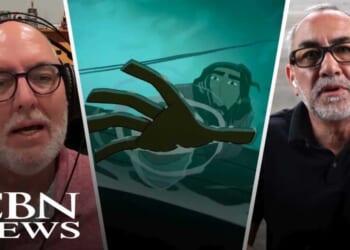The assassination of Charlie Kirk sent shockwaves through the nation, not only because of its political ramifications but because of what it reveals about an entire generation teetering on the edge.
The 22-year-old shooter who ended Kirk’s life was not some foreign radical. He was a product of modern America — isolated, nihilistic, and radicalized online. He lived with a transgender lover, spent his days on Discord, immersed himself in digital subcultures, including the “furry” community, a corner of the Internet where people express themselves by creating fictional personas of anthropomorphic animals. He wasn’t building anything. He wasn’t working toward much of a future after dropping out of college after one scholarship-backed semester. He was marinating in resentment, steeping in the corrosive cultural cocktail that has come to define much of Gen Z.
That matters. Because it wasn’t just an attack on a conservative thought leader. It was a symptom of a deeper generational decay.
Gen Z is the most self-destructive generation in modern history. Mental health crises are surging. Self-harm, eating disorders, drug use, gender experimentation, and suicide rates are all climbing. Gen Z latches on to identity in the absence of feeling like they can impact society; they turn inward. Therefore, many of these behaviors, rebranded as empowerment or self-expression, become their life’s work. (RELATED: The Role Model Generation Z Needed — Charlie Kirk)
This is a generation that doesn’t know who it is, what it believes, or why it matters.
Young people grew up consuming guiding messages from their parents, teachers, politicians, video games, TV shows, news outlets, and especially the Internet. Today, social media distributes information faster than ever before, often bombarding users with content they never asked to see.
They consumed messages that prioritized identity over character, your truth over the truth, and diagnosing the problem instead of solving it.
Gen Z was told they were both fundamentally broken and perfect as they are. They consumed messages that prioritized identity over character, your truth over the truth, and diagnosing the problem instead of solving it. They plunged into social media machines that reaffirm their external locus of control, which are echo chambers where users just like them validate their pain and existence. And once you get into that negative feedback loop, when the algorithm knows what makes you tick, you become trapped in a self-destructive spiral, enabling your vices. You sought it out — without realizing it. Now, you are stuck.
Is it any wonder why that despair festers? That young people look for belonging in fringe ideologies, violent subcultures, or fantasy personas? That they lash out when confronted with voices — like Charlie Kirk’s — that challenge their worldview? That encourage you to rethink your own ethos? (RELATED: Acknowledging the Relationship Between Transgender Identity and Violence)
Charlie Kirk was dangerous to many on the radical left precisely because he did something rare: he spoke directly to Gen Z without being condescending. He didn’t lecture from a pedestal. He let college students lead with questions. He brought faith, courage, and conviction into a generation starving for purpose. He offered meaning in a culture corroded by disillusionment. (RELATED: Charlie Kirk’s Assassination Is a Turning Point for the USA)
And it worked. In the days after his murder, Turning Point USA reported thousands of new chapter inquiries. Students weren’t scared off by violence. They were inspired. Because Kirk’s message wasn’t about grievance or “owning the libs” — it was about building something bigger than yourself.
That’s the choice now in front of Gen Z: build or burn. Meaning or nihilism. Courage or cowardice. The shooter chose to destroy. Kirk chose to serve. Two men, two very different paths — one ended in martyrdom, the other in disgrace.
Unfortunately, the culture that shaped the shooter is not a fringe one. It’s in the TikToks that tell kids they’re victims. It’s in the classrooms that say American values are oppressive. It’s in the entertainment that glorifies mental illness and trivializes violence. It’s in the social media feeds that regurgitate death as content, where ideology replaces empathy. (RELATED: Treating Insanity, Not Normalizing It)
We saw it in the brutal stabbing of Iryna Zarutska, a 23-year-old Ukrainian refugee who was murdered on a Charlotte light rail. Captured on video, the attack was sudden and unprovoked, and the passengers around her did nothing. Some filmed. Some got off the train. Most looked away until a man rushed to Iryna’s aid — but it was too late. (RELATED: If You See a Girl Bleeding Out on a Train, What Would You Do?)
That’s what happens when a culture that glorifies self-destruction spills outward. When the belief that “nothing matters” turns into action. When a generation trained to perform pain for likes starts acting on it in real life.
And yet, there’s still hope.
Because for every celebration of Kirk’s death online, there are thousands of young people waking up. They are realizing the emptiness of the digital hive-mind and the hollowness it harnesses.
Gen Z is being pulled in two directions. One path leads to despair. The other leads to purpose. It is a battle between hope and fear. The future depends on which one they choose.
READ MORE from Julianna Frieman:
Charlie Kirk’s Assassination Is a Turning Point for the USA
If You See a Girl Bleeding Out on a Train, What Would You Do?
Charlotte Murderer Who Killed Ukrainian Refugee Shares Family Ties to Another Convicted Killer
Julianna Frieman is a writer based in North Carolina. She received her bachelor’s degree in political science from the University of North Carolina at Charlotte. She is pursuing her master’s degree in Communications (Digital Strategy) at the University of Florida. Her work has been published by the Daily Caller, The American Spectator, and The Federalist. Follow her on X at @juliannafrieman.





![Gavin Newsom Threatens to 'Punch These Sons of B*thces in the Mouth' [WATCH]](https://www.right2024.com/wp-content/uploads/2025/08/Gavin-Newsom-Threatens-to-Punch-These-Sons-of-Bthces-in-350x250.jpg)
![ICE Arrests Illegal Alien Influencer During Her Livestream in Los Angeles: ‘You Bet We Did’ [WATCH]](https://www.right2024.com/wp-content/uploads/2025/08/ICE-Arrests-Illegal-Alien-Influencer-During-Her-Livestream-in-Los-350x250.jpg)








